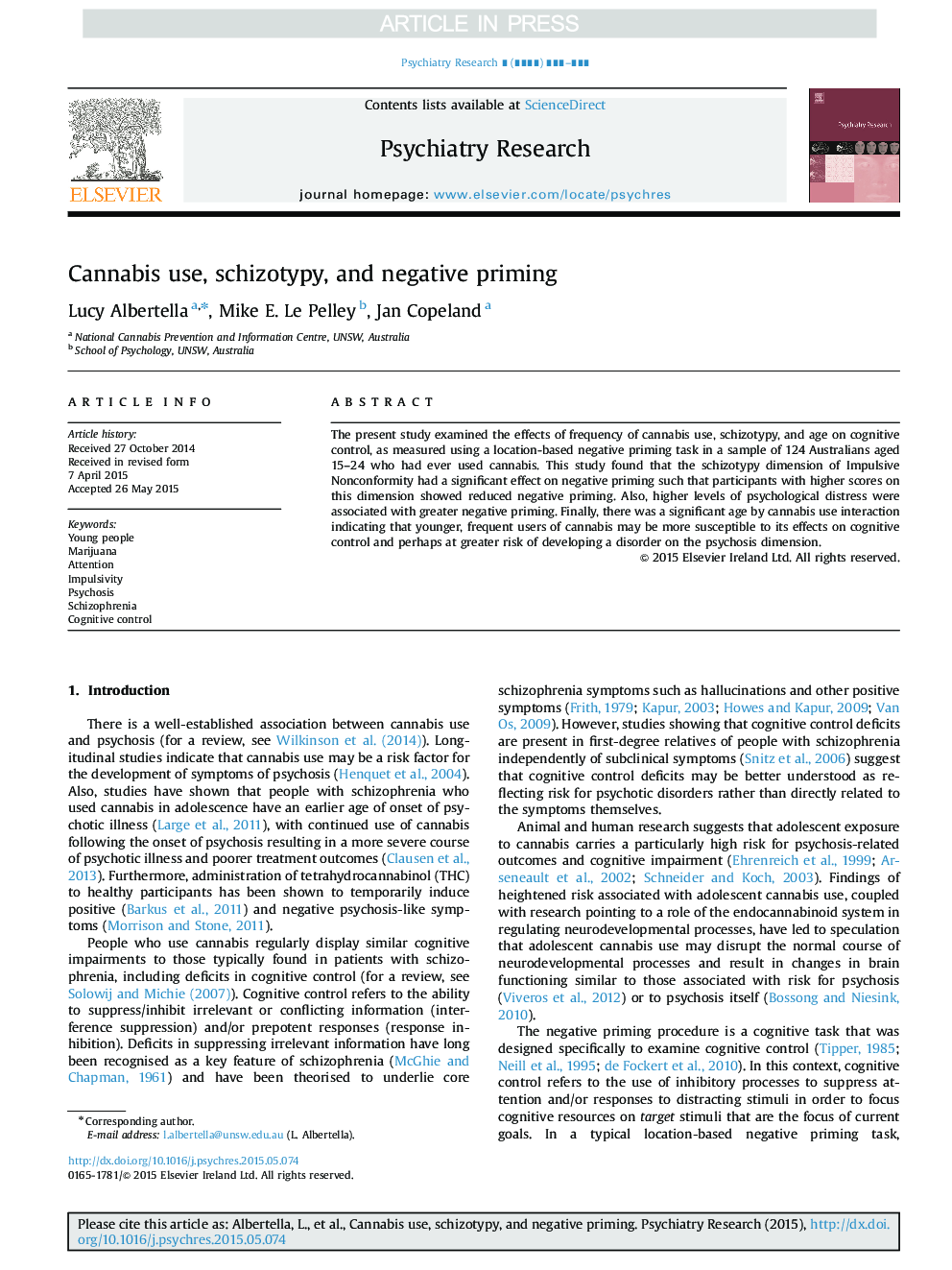| Article ID | Journal | Published Year | Pages | File Type |
|---|---|---|---|---|
| 10303687 | Psychiatry Research | 2015 | 7 Pages |
Abstract
The present study examined the effects of frequency of cannabis use, schizotypy, and age on cognitive control, as measured using a location-based negative priming task in a sample of 124 Australians aged 15-24 who had ever used cannabis. This study found that the schizotypy dimension of Impulsive Nonconformity had a significant effect on negative priming such that participants with higher scores on this dimension showed reduced negative priming. Also, higher levels of psychological distress were associated with greater negative priming. Finally, there was a significant age by cannabis use interaction indicating that younger, frequent users of cannabis may be more susceptible to its effects on cognitive control and perhaps at greater risk of developing a disorder on the psychosis dimension.
Related Topics
Life Sciences
Neuroscience
Biological Psychiatry
Authors
Lucy Albertella, Mike E. Le Pelley, Jan Copeland,
